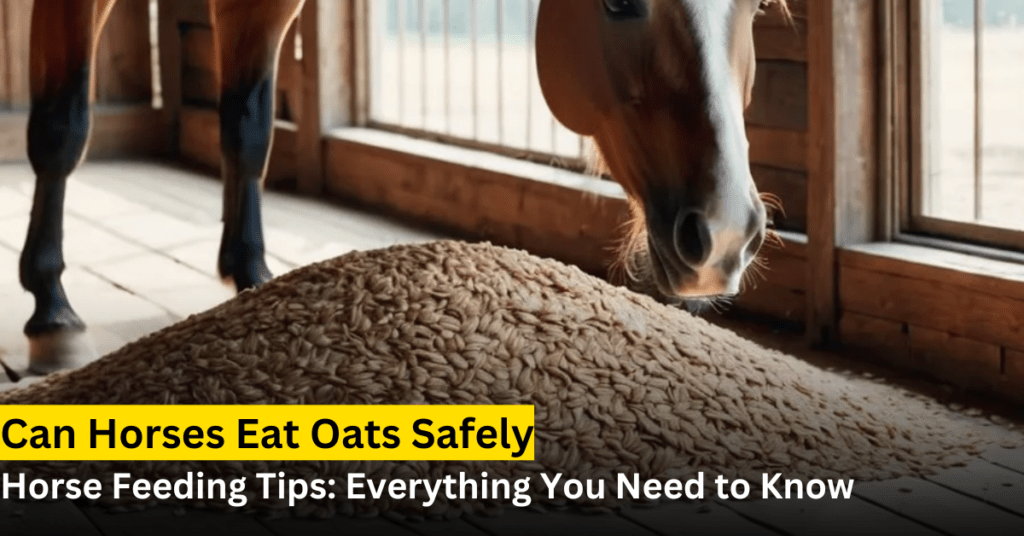Horses are known for their love of hay, grass, and the occasional treat, but have you ever wondered if oranges are safe for them? With their juicy texture and tangy flavor, oranges seem like a refreshing snack. However, it’s essential to understand the potential benefits and risks of feeding this fruit to your equine companion.
This guide will explore whether horses can safely enjoy oranges, how to introduce them responsibly, and the impact they might have on their health.
Are Oranges Safe for Horses?
Yes, oranges are safe for horses to eat in moderation. They are packed with essential nutrients like vitamin C, potassium, and fiber, making them a nutritious addition to their diet. However, their high sugar content means they should only be fed occasionally and in controlled amounts. Horses with specific health conditions, such as insulin resistance or laminitis, should avoid oranges due to their sugar levels.
Key Takeaways:
- Oranges are safe and non-toxic for horses.
- Introduce oranges gradually to monitor your horse’s tolerance.
- Avoid feeding oranges to horses with metabolic or digestive sensitivities.
Nutritional Benefits of Oranges for Horses
Oranges are not only a tasty treat but also a source of valuable nutrients. Let’s break down how they can benefit your horse’s overall health:
- Vitamin C Boost
Horses naturally produce vitamin C in their liver, but additional supplementation can help strengthen their immune system, especially during stress or illness. - Fiber for Digestion
While hay and grass are the primary sources of fiber, the fiber content in oranges supports gut health and aids digestion. - Potassium for Muscle Health
Potassium is an electrolyte that helps maintain proper muscle and nerve function. Oranges can be particularly beneficial for horses engaged in regular exercise or those living in hot climates. - Hydration
With their high water content, oranges can provide a refreshing hydration boost, especially during warm weather. - Calcium for Bone Strength
Oranges contain small amounts of calcium, which is essential for maintaining strong bones and teeth.
How to Feed Oranges to Horses
To ensure your horse enjoys oranges safely, follow these simple guidelines:
- Wash Thoroughly: Remove dirt and pesticide residues from the fruit.
- Cut Into Small Pieces: Slice the orange into manageable chunks to reduce choking risks.
- Remove Seeds and Peel: While seeds are not toxic, they can cause digestive discomfort. The peel can also be tough for some horses to chew, although it is safe if thoroughly washed.
- Start Small: Introduce a small piece first and observe your horse for any signs of discomfort, such as colic or diarrhea.
Feeding Tips
Limit your horse’s intake to 1–2 slices per week. Overfeeding oranges can disrupt their digestive system or lead to sugar-related issues.
Can Horses Eat Orange Peels?
Yes, horses can eat orange peels, but not all will enjoy their slightly bitter taste. Peels are rich in fiber, which supports digestion. However, it’s essential to wash them thoroughly to remove any chemical residues. If your horse seems hesitant or dislikes the peel, simply discard it and stick to the fruit.
Are Oranges Suitable for All Horses?
Oranges might not be suitable for every horse. Here’s a closer look at which horses should avoid this fruit:
- Horses with Metabolic Disorders: Conditions like Equine Metabolic Syndrome (EMS) or laminitis make it necessary to limit sugar intake.
- Older Horses: Senior horses with dental issues may find it difficult to chew citrus fruits.
- Allergic Reactions: Although rare, some horses may exhibit allergic reactions. If you notice hives, discomfort, or unusual behavior, discontinue feeding and consult your vet.
Potential Risks of Feeding Oranges to Horses
While oranges offer numerous benefits, there are some risks to consider:
- Choking Hazard: Always cut oranges into small pieces to prevent choking, especially in younger or older horses.
- Digestive Issues: Excessive consumption can lead to diarrhea or colic due to their high sugar and acid content.
- Dental Health: The acidity in oranges may erode tooth enamel over time if consumed frequently.
By feeding oranges responsibly and in moderation, you can minimize these risks and ensure your horse enjoys them safely.
Oranges vs. Traditional Horse Treats
While apples and carrots are the go-to treats for many horse owners, oranges offer unique nutritional benefits. Here’s how oranges compare:
| Feature | Oranges | Traditional Horse Treats |
|---|---|---|
| Nutrition | Rich in Vitamin C and natural sugars | May lack essential vitamins |
| Taste | Sweet and tangy | Often sweet but lacks variety |
| Cost | Affordable and readily available | Varies based on brand |
| Convenience | Needs to be peeled | Ready to use |
Conclusion
Oranges can be a safe and nutritious treat for horses when fed in moderation. Packed with vitamins, fiber, and potassium, they offer a refreshing change to traditional treats. However, it’s crucial to consider your horse’s specific health needs and introduce oranges gradually to avoid any adverse effects.
For most horses, a few small slices of orange per week can provide a boost of hydration and nutrition. Always consult your veterinarian before introducing new foods, especially for horses with metabolic conditions or other health concerns.
With the right approach, oranges can become a delightful addition to your horse’s diet, adding variety and health benefits to their feeding routine.
FAQs
- How often can I feed oranges to my horse?
You can feed oranges 1–2 times per week in small amounts, such as 1–2 slices per serving. - Should I peel the orange before feeding it to my horse?
While it’s not necessary, peeling the orange can help reduce exposure to pesticides and make it more palatable. - Can orange seeds harm my horse?
Orange seeds are not toxic but can pose a choking risk. It’s best to remove them before feeding. - Are oranges suitable for senior horses?
Yes, but senior horses with dental issues may struggle to chew oranges. Cutting them into smaller pieces or removing the peel can help. - What are the main benefits of oranges for horses?
Oranges provide vitamin C, fiber, potassium, and hydration, making them a healthy and refreshing treat when fed in moderation.





